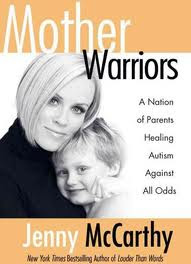Another month, another set of reviews. This month I read to three novels that just so happened to feature males as the main characters. So, I ask myself, what would these men be like to date?
C Tom McCarthy
320 pages
The Guy: Serge is a brooding, socially-stunted intellectual with an eccentric family.
The Novel: I was really disappointed in this story after reading many positive reviews. It's quirky and McCarthy's writing itself isn't bad, I just couldn't get into the poorly developed story. The areas that were interesting, like his time growing up at the school for the deaf that his father ran, weren't given as much times as the more mundane parts were. I definitely don't recommend this.
Room Emma Donoghue
336 pages
The Guy: Jack is seriously immature, only caring about what goes on in his little world and wanting nothing to do with anyone but his mom. Nobody wants to marry a mamma's boy.
The Novel: Jack is a five-year-old who lives in a converted garden shed after his mother was kidnapped and impregnated a few years before he was born. Eventually they plan their escape and must learn to live in the real world. Definitely a quick, interesting read with a unique narration. This was our first book club selection and we all liked it, for different reasons (we also had different complaints). It's not perfect, but it's a good read. Interestingly, this novel is a serious departure from the the other books she's written. Here's the "trailer" for the book (not sure how I feel about these, but sometimes they can be informative):
The Lonely Polygamist Brady Udall
600 pages
They Guy: Golden is a total player, involved with five women and the father of twenty-eight children. Go indulge your bad boy phase with another of the ten billion fish in the sea.
The Novel: Polygamy is always interesting- it's an exclusive club that most of us aren't privy too, and the increase in books, shows, and articles give us a little insight. In this novel, Golden is married to four women and is secretly seeing a non-Mormon who is married to the owner of a Nevada brothel. There are several interesting subplots that all end up intertwining by the end. On the negative side, I am fairly confident that the author has watched an episode or two of Big Love and that he could have trimmed the fat just a smidge (maybe 500 pages instead of 600). Despite a few flaws, I definitely recommend this book.
C Tom McCarthy
320 pages
The Guy: Serge is a brooding, socially-stunted intellectual with an eccentric family.
The Novel: I was really disappointed in this story after reading many positive reviews. It's quirky and McCarthy's writing itself isn't bad, I just couldn't get into the poorly developed story. The areas that were interesting, like his time growing up at the school for the deaf that his father ran, weren't given as much times as the more mundane parts were. I definitely don't recommend this.
Room Emma Donoghue
336 pages
The Guy: Jack is seriously immature, only caring about what goes on in his little world and wanting nothing to do with anyone but his mom. Nobody wants to marry a mamma's boy.
The Novel: Jack is a five-year-old who lives in a converted garden shed after his mother was kidnapped and impregnated a few years before he was born. Eventually they plan their escape and must learn to live in the real world. Definitely a quick, interesting read with a unique narration. This was our first book club selection and we all liked it, for different reasons (we also had different complaints). It's not perfect, but it's a good read. Interestingly, this novel is a serious departure from the the other books she's written. Here's the "trailer" for the book (not sure how I feel about these, but sometimes they can be informative):
The Lonely Polygamist Brady Udall
600 pages
They Guy: Golden is a total player, involved with five women and the father of twenty-eight children. Go indulge your bad boy phase with another of the ten billion fish in the sea.

The Novel: Polygamy is always interesting- it's an exclusive club that most of us aren't privy too, and the increase in books, shows, and articles give us a little insight. In this novel, Golden is married to four women and is secretly seeing a non-Mormon who is married to the owner of a Nevada brothel. There are several interesting subplots that all end up intertwining by the end. On the negative side, I am fairly confident that the author has watched an episode or two of Big Love and that he could have trimmed the fat just a smidge (maybe 500 pages instead of 600). Despite a few flaws, I definitely recommend this book.






















